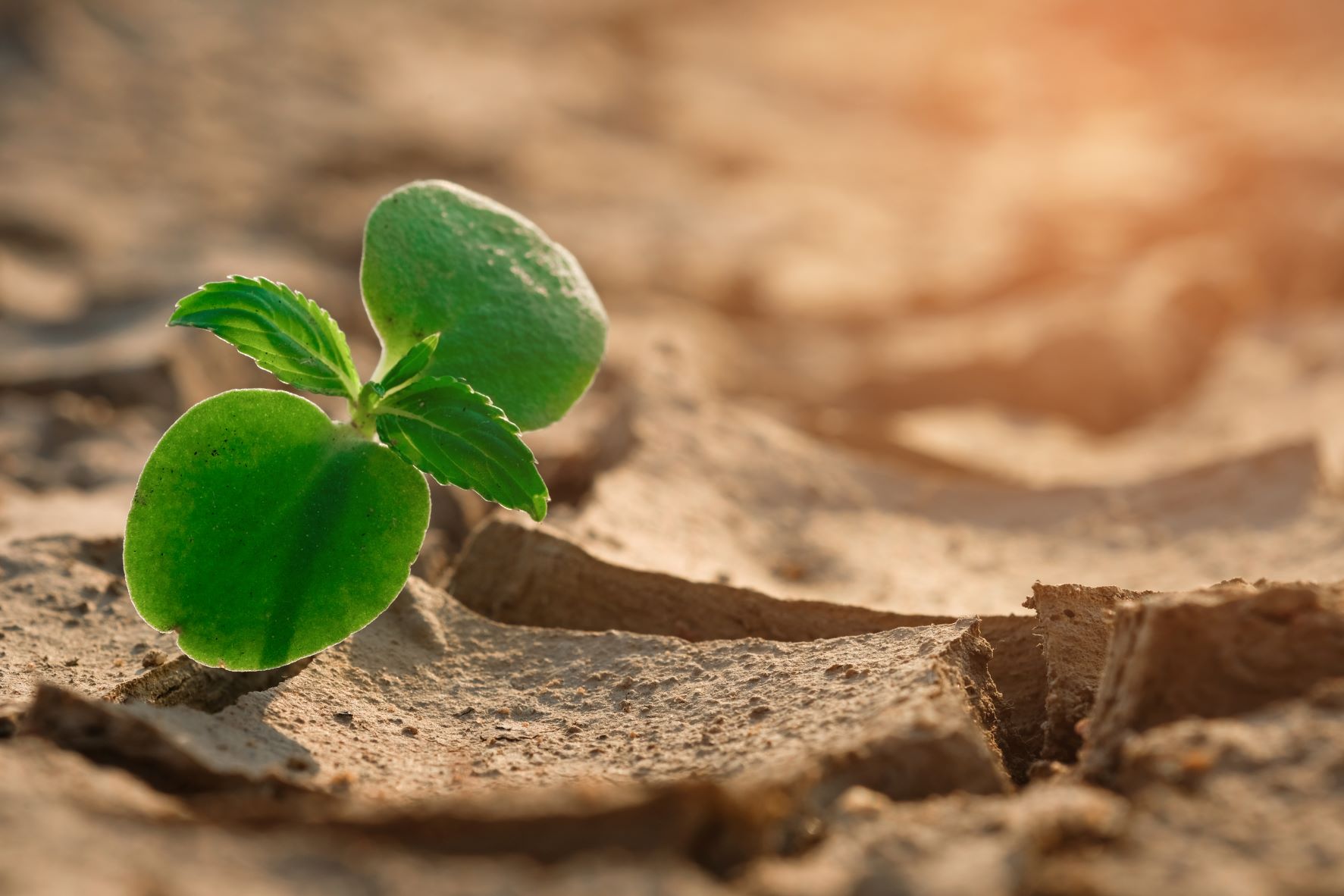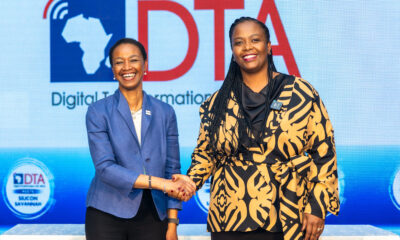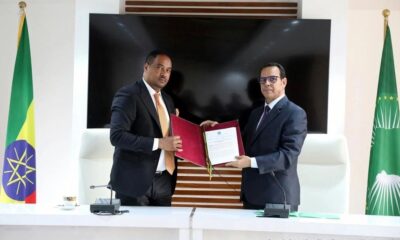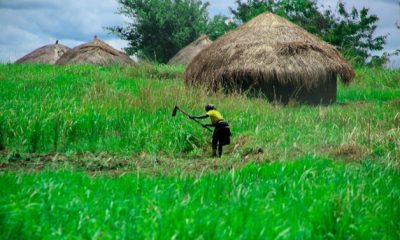NGOs - SDGs
Shifting Africa’s climate change disaster risk architecture before COP26 and beyond

All eyes are on the existential crisis posed by climate change as the United Nations Framework Convention on Climate Change (UNFCCC COP26) approaches, with many warning that lessons for dealing with climate change threats must be learned from how Africa has handled the current COVID crisis.
Resilience in Africa to these climate change impacts can only be built with the assistance of developed countries and these have a vested long-term interest in providing this support, says Ange Chitate, COO African Risk Capacity Limited.
“Beyond COVID, the most critical risk to Africa is the availability of water, which is directly linked to climate change. The continent is extremely vulnerable to and bears the brunt of drought, flooding, cyclones and other climate change-led weather events, even though it has actually had very little impact on carbon emission,” says Chitate.
This is particularly serious for a continent like Africa which depends so heavily on agriculture for its economy and employment.
“When one considers that agriculture sustains two thirds of Africa’s employment and that more than 80% of agriculture in Africa is conducted by small- to medium-scale farmers who are at the mercy of climate change events completely out of their control, COP26 talks have to deliver practical and meaningful support from developed countries to help ensure a high level of preparedness in the developing world for what is being touted as the next pandemic,” Chitate adds.
It is a view shared by South Africa Forestry, Fisheries and Environment Minister Barbara Creecy, who says if COP26 is to be successful, developing countries need support from developed countries in the form of finance, technology and capacity building.
South Africa’s suggested global goal on adaptation sees focus being placed on “the most vulnerable people and communities; their health and well-being; food and water security; infrastructure and the built environment; and ecosystems and ecosystem services, particularly in Africa, Small Island states and Least Developed Countries”.
Minister Creecy also calls on developed countries to ensure access to long-term, predictable and affordable finance for developing communities.
Building Africa climate change resilience through natural disaster insurance relief
“There’s a responsibility for G7 countries to support Africa in managing the impact of climate change by, for example, providing sovereigns with parametric insurance premium finance to help them respond swiftly and decisively to crises fueled by climate change on the continent,” says Delphine Traoré, ARC Limited Non-Executive Director.
Established in 2014, ARC Limited provides natural disaster insurance relief to African countries which have joined the sovereign risk pool.
Along with its partners, which provide premium support, the insurer has already paid over US$65m to seven countries to provide drought relief and address the economic concerns these countries’ most vulnerable citizens face.
Governments then make payments to the most vulnerable households in drought-stricken or other climate-affected areas so the most vulnerable communities can supplement their food budgets if reduced harvest tends to push up food prices.
“Our role is explaining to African governments the importance of having this type of insurance and accounting for food security and disaster risk in their budgetary work process.
“There’s been a lot of work done by ARC Limited with the support of the African Development Bank and other financial institutions to see how we can support these countries with a super replica programme. We need to do more still to find a sustainable way to do premium financing for countries that are not able to afford it but that are quite impacted by climate change impacts,” says Traoré.
Most recently, ARC Limited paid out US$2.1m to the Madagascar Government to meet the food security needs of over 600,000 people affected by the devastating drought.
ARC Limited’s role as a parametric insurer is critically important in building resilience and ensuring a country is able to bounce back swiftly after a natural disaster. “We monitor the rainfall of countries in the risk pool and sovereign insurance pay outs are triggered when the system reveals that there hasn’t been enough rain, before droughts get to a crisis stage, farmers are left with nothing and people are starving,” explains Chitate.
The programme further helps countries build capacity to manage climate-related risks. In this way it attempts to shift the disaster risk management architecture to be proactive, not reactive, says Chitate.
“We see a tangential benefit of this type of programme being the increasing sophistication of countries to better understand risk. The current COVID pandemic is a good example of this.
“When dealing with risk mitigation and management, one needs to examine the reason why governments don’t act. On the insurance side, one of the issues to address is around premium affordability because it’s quite expensive to insure against natural disasters and payment of premium competes against other national priorities,” explains Chitate.
Sovereigns which participate in the ARC programme must also develop a contingency plan which sets out at a very high level how the government would spend any insurance pay out they receive from ARC.
“Through this plan, we ensure the funds get to the intended beneficiaries. Having a plan increases dramatically the speed of execution because at a point the government received the funding, it already has a plan on how to disburse this,” she says.
With US$100 million in its kitty, ARC says it probably has the largest balance sheet dedicated to climate risks in Africa.
NGOs - SDGs
Laila Bastati on the importance of diversity in shaping Africa’s future

Laila Bastati, Chief Commercial Officer, APO Group (Source: APO Group)
As we observe International Women’s Month with the theme of ‘Inspire Inclusion,’ it is essential to contemplate the importance of diversity within organizations and its crucial role in shaping a more equitable and inclusive society. This year’s theme calls on us to inspire others to understand and value women’s inclusion, not just for the benefit of women but for the advancement of the African continent.
Women across Africa face unique challenges, from cultural barriers to limited access to resources and opportunities. However, despite these difficulties, they continue to defy the odds, breaking barriers, and making significant contributions to their communities and economies. As we recognise such achievements, it’s crucial to underline the importance of promoting the role of women in driving more diverse, competitive, and future-looking workspaces.
“At APO Group, we’re proud of our extremely diverse team of professionals from all over the world. The diversity we see in age, gender, locations, backgrounds, and experience all combines to forge a formidable team that brings the best of APO Group to our clients. In an industry that has achieved, in recent years, a good gender balance, we strive to lead by example, leveraging our platform to advocate for broader gender equality and diversity initiatives, aiming to inspire other organizations to follow suit.” said Laila Bastati, Chief Commercial Officer, APO Group.
“For us, such diversity reflects a leadership that values and promotes the unique perspectives and contributions of women, at all levels of the organisation. It also clearly demonstrates that we’re an organisation that values inclusivity and equality, and that the different voices and ideas of our team reflect a unique understanding of the African markets in which we operate. The result of being firm proponents of an environment in which all contributions are valued, and where collaboration is part of our culture, is that innovation and creativity come naturally.” Laila Bastati Added.
The importance of embracing diversity
Embracing diversity, especially gender diversity, is essential for any organization aiming to create a balanced, fair, and dynamic working environment.There’s no doubt that for any type of organisation, embracing diverse perspectives and expertise, highlighting achievements and success stories, and advocating for equal opportunities and recognition, are all aspects that contribute to a more equitable and inclusive environment where everyone has the chance to succeed based on merit and talent.
Successful companies intentionally cultivate diverse leadership at all levels. While this may initially appear coincidental, the process of building diverse teams is a deliberate and strategic endeavour that underscores a commitment to creating spaces where women’s leadership and insights drive innovation and strategic decision-making.
What makes a diverse team?
Firstly, promoting diversity in leadership is crucial. Actively recruiting, developing, and promoting the right female candidates into leadership positions ensures women’s perspectives are represented at the decision-making table. Secondly, reviewing and revising policies to ensure they are gender-neutral and promote equal opportunities for all employees is essential. Thirdly, providing equal access to training, mentorship, and career advancement opportunities, with a particular focus on supporting women, is key.
Additionally, creating a supportive work environment and nurturing a culture of inclusion where all employees feel valued, respected, and supported is paramount. Regularly monitoring and evaluating diversity metrics to track progress and identify areas for improvement is also important. Finally, embracing a culture of work meritocracy where individuals are recognised and rewarded based on their skills, contributions, and performance, rather than on gender, race, or other characteristics, completes the foundation of a diverse team.
In the context of this special period of the year, I urge organizations across Africa to recognize and harness the unique strengths women bring to the table, not only to promote gender equity, but to ensure these organizations will continue to have a place in the workspace of tomorrow.
NGOs - SDGs
IWD 2024: Dr. Omolaraeni Olaosebikan Calls For More Gender Inclusion

Dr. Omolaraeni Olaosebikan, Group Chief Executive Officer, McEnies Global Communications has joined other women of note to commemorate the annual International Women’s Day (IWD) marked every calendar year of March 8 across the globe.
The owner of the upwardly wholly company with vast expertise and competency in integrated marketing communications services called on women folk to break the bias against them and find their path even as she advised them to push for merit driven results in every areas of their endeavors.
Omolara, a woman with records of excellence in providing top-notch solutions to big and medium firms across all sectors and industry shared her perspectives in commemorating the 2024 International Women’s Day which came with the theme, ‘Inspire inclusion’.
In a statement credited to her on Friday and made available to newsmen, Dr Omolaraeni said:
“Every year on 8 March, International Women’s Day is celebrated to commemorate and honour women’s accomplishments, raise awareness about gender disparities and discrimination, as well as promote global support for women, as a woman I am truly proud to be part of this auspicious day.
“It is however impressive to know that 2024 International Women’s Day comes in line with the global movement for women’s rights, equality, justice, poverty, sexual harassment, violence and discrimination against women and I must commend stakeholders for the well thought out theme for the year which is, ‘Inspire inclusion.’
“It is my prayer and hope that this will be made actionable through the introduction of right legal frameworks, polices and robust legislation from the states and National Assemblies so that women will have their place of pride in the scheme of things.
“There are records to show that women have suffered many gender-related challenges therefore more efforts need to be put in place to break the jinx of gender inequality, intergenerational cycle of poverty, particularly for disadvantaged women and girl children etc. Women must also come together in one voice and change the narrative so that the society can be better for it and the time is now. Omolara said.
Speaking further the marketing communication consultant stated, “I jointly celebrate every strong woman out there including myself! You are stronger than you ever imagine, never renege to ‘Inspire inclusion’ in every sphere of life, don’t give room for limitations, we are great and we shall fulfill our purpose and destiny, we are above discrimination and limitations.
“Let’s “Inspire Inclusion” by fostering understanding and appreciation for women’s inclusion. Together, we can create a world where women feel a deep sense of belonging, relevance, and empowerment.
“Let’s inspire others to recognize and value the importance of inclusion for women, as this paves the way for a brighter future for all. Embrace the spirit of unity and empowerment, and let’s work collectively to build a more inclusive world for women.
“Let’s aspire to inspire, crave inclusion, and be included.
“Happy International Women’s Day!” The statement concluded.
Corporate Citizenship
Nkuzi Stem Shines a Light on International Day of Women and Girls in Science

Nkuzi Stem Initiative
In a world driven by technological advancements, ensuring inclusivity and diverse perspectives within STEM fields is no longer optional, it’s essential. Recognizing this critical need, the Grundfos Foundation and Rector Cares Foundation joined forces to launch the groundbreaking “Nkuzi Stem” initiative, meaning “Learn” in Igbo.
More than just a program, Nkuzi Stem serves as a beacon of hope for aspiring young minds, particularly girls aged 15-20 from diverse backgrounds. This innovative education initiative aims to bridge the gap in tech diversity, paving the way for a brighter, more inclusive future. Through Nkuzi Stem, students embark on a fascinating journey into the world of STEM, equipped with the support, mentorship, and resources they need to thrive.
A core objective of Nkuzi Stem is to dismantle the notion that gender limits potential in technology and computer science. Through workshops, seminars, and hands-on experiences, the initiative empowers young talents, regardless of gender, to excel in the STEM field. By providing coding boot camps, scholarships, and networking opportunities, Nkuzi Stem is poised to revolutionise STEM education in Nigeria.
Last year’s launch at the Federal Government Girls College, Lejja Enugu, marked the beginning of a transformative journey for the students. As pioneers of Nkuzi Stem, they gain access to a wealth of programs and resources designed to nurture their passion for STEM.
At the recent International Day of Women and Girls in Science event, Onyedikachi Erete, founder of Rector Cares Foundation, passionately emphasised the importance of diversity in technology. “Diversity isn’t just about fairness, it’s about unlocking the full potential of the tech industry. Nkuzi Stem recognises this, nurturing a generation of innovators who will bring fresh perspectives and drive progress for all,” he stated. “Seeing beyond limitations, Nkuzi Stem dismantles the walls of exclusion in tech. Our goal is to empower diverse talents and cultivate a tech landscape that truly reflects the richness of our communities.”
Nkuzi Stem aligns with the UN’s Sustainable Development Goal 5, aiming for gender equality. The initiative serves as a model for similar programs worldwide, fostering a global movement for girls in STEM.
Nkuzi Stem transcends simply offering opportunities; it reshapes the future of the tech industry by fostering diversity and inclusion. By unlocking the potential of a new generation of female innovators, the initiative promises to bring fresh perspectives and ideas to the world of technology, ultimately benefiting society at large.
As we celebrate International Day of Women and Girls in Science, let us applaud initiatives like Nkuzi Stem that are paving the way for a more inclusive and equitable future in STEM. Together, let us continue to support and empower girls and women in their journey towards excellence in science and technology.
-

 Technology1 day ago
Technology1 day agoFawry and Roboost sign “MOU” to enhance digital transformation and financial inclusion
-

 Business Home1 day ago
Business Home1 day agoNBA Africa Launches Accelerator Focused on Early-Stage African Startups
-

 Entertainment1 day ago
Entertainment1 day agoUniversal Music France and Binetou Sylla partner to lead Def Jam Africa
-

 Afripreneur7 hours ago
Afripreneur7 hours agoBukola Babajide On Empowering Women In The Tech Ecosystem














